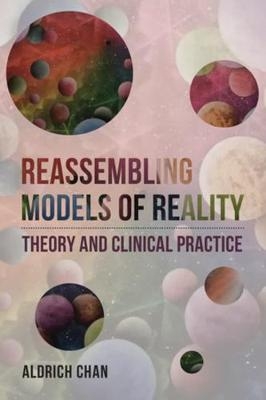
Reassembling Models of Reality
Theory and Clinical Practice
Seiten
2021
WW Norton & Co (Verlag)
978-1-324-01597-0 (ISBN)
WW Norton & Co (Verlag)
978-1-324-01597-0 (ISBN)
Clinical musings on the nature of reality and “known experience”.
Therapists must rely on their clients’ reporting of experience in order to assess, treat and offer help. Yet we all experience the world through various filters of one sort or another, and our experiences are transformed through several nonconscious processes before reaching our conscious awareness. Science, philosophy and wisdom traditions share the belief that our awareness is very restricted. How, then, can anyone accurately report their experience, let alone get help with it?
Neuropsychologist Aldrich Chan examines how our experience of reality is assembled and shaped by biological, psychological, sociocultural and existential processes. Each chapter explores processes within these domains that may act as “veils”. Topics in the book include: the default mode network, cognitive distortions, decision-making heuristics, the interconnected mind, memory and cultural concepts of distress. By understanding the ways in which reality can be distorted, clinicians can more effectively help their clients reach their personal psychotherapeutic goals.
Therapists must rely on their clients’ reporting of experience in order to assess, treat and offer help. Yet we all experience the world through various filters of one sort or another, and our experiences are transformed through several nonconscious processes before reaching our conscious awareness. Science, philosophy and wisdom traditions share the belief that our awareness is very restricted. How, then, can anyone accurately report their experience, let alone get help with it?
Neuropsychologist Aldrich Chan examines how our experience of reality is assembled and shaped by biological, psychological, sociocultural and existential processes. Each chapter explores processes within these domains that may act as “veils”. Topics in the book include: the default mode network, cognitive distortions, decision-making heuristics, the interconnected mind, memory and cultural concepts of distress. By understanding the ways in which reality can be distorted, clinicians can more effectively help their clients reach their personal psychotherapeutic goals.
Aldrich Chan, PSYD, is a clinical neuropsychologist and founder of the Center for Neuropsychology and Consciousness (CNC), a practice in Miami, Florida that provides neuropsychological and psychological services. He is an Adjunct Professor for Pepperdine University and conducts research on the default mode network and trauma at the University of Miami. He has publications on topics including Alzheimer’s disease, memory, imagination, mindfulness, play, and creativity.
| Erscheinungsdatum | 04.05.2021 |
|---|---|
| Reihe/Serie | Norton Series on Interpersonal Neurobiology |
| Zusatzinfo | 4-6 black-and-white illustrations |
| Verlagsort | New York |
| Sprache | englisch |
| Maße | 160 x 236 mm |
| Gewicht | 732 g |
| Themenwelt | Geisteswissenschaften ► Psychologie ► Allgemeine Psychologie |
| Geisteswissenschaften ► Psychologie ► Klinische Psychologie | |
| Geisteswissenschaften ► Psychologie ► Sozialpsychologie | |
| Geisteswissenschaften ► Psychologie ► Verhaltenstherapie | |
| ISBN-10 | 1-324-01597-7 / 1324015977 |
| ISBN-13 | 978-1-324-01597-0 / 9781324015970 |
| Zustand | Neuware |
| Informationen gemäß Produktsicherheitsverordnung (GPSR) | |
| Haben Sie eine Frage zum Produkt? |
Mehr entdecken
aus dem Bereich
aus dem Bereich
Techniken der Verhaltenstherapie
Buch (2024)
Julius Beltz GmbH & Co. KG (Verlag)
35,00 €


